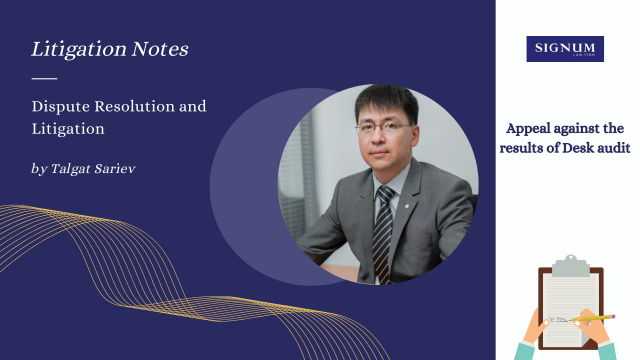Litigation Notes: Appeal against the results of Desk audit
December 10, 2020
Cameral audit creativity
The "creativity" of the tax authorities in conducting cameral audits never ceases to please. The issue of describing the violations has already set the teeth on edge. The tax authority’s position is pretty straightforward: quoting the Tax Code provisions - is a description of the breach itself.
Or demands to pay VAT previously refunded from the budget, with a three-or four-year interest. Even though the VAT refund was carried out based on acts of documentary inspections, cameral inspections' results contradict the acts of documentary inspections.
An interesting question arose when appealing the decision to recognize the cameral notification as unfulfilled. The tax authority requires payment of VAT previously refunded from the budget (about 170 million tenge). After receiving the cameral notification, the taxpayer sent an explanation to the tax authority on the alleged violations. The tax authority decided to regard the notification as unfulfilled only 30 working days after receiving the explanation.
During the first instance of court proceedings, the tax authority commences the documentary inspection, which was not based on the cameral notification but based on the taxpayer's request. Therefore, the tax periods covered by the new inspection do not match with the tax periods under the cameral audit.
In court, the tax authority tried to prove that all violations under the cameral notification were "included" in the new documentary inspection and will not "affect" the future. At the same time, no reference is made to the legislation. While the provision of the Tax Code on extending the limitation period until the cameral notification is fulfilled is ignored.
Another interesting issue also arose about the cameral notification. Under the double taxation treaty, the taxpayer applied tax exemption to the income of non-resident from equipment rent.
The tax authority considered the income from equipment rent as royalty income because leased equipment is classified as "industrial equipment." At the same time, the tax authority refers to the Classifier of Fixed Assets, which does not contain, likewise, the legislation of the Republic of Kazakhstan itself, the definition of "industrial equipment".


